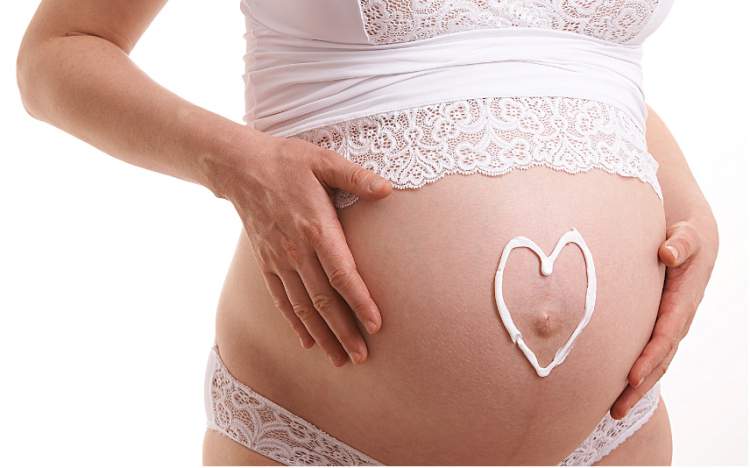Pregnancy is a magical moment in every woman’s life, but there are some components of beauty products that pregnant women should avoid.
A lot of information circulates on the Internet about what these components are.
To prevent you from missing all your favorite products for 9 months or, even worse, using a product you shouldn’t during pregnancy, we turned to an expert for tips.
Jaime Knopman is an endocrinologist at the Colorado Center for Reproductive Medicine, in the USA, and gives the correct guidance on which components pregnant women should avoid.

1. Pregnant women should avoid Retinoids (risk: high)
Retinoids are all vitamin A derivatives that include topical retinols, such as those found in anti-aging creams, and oral retinols, such as isotretinoin (commonly known as Accutane), used to treat acne.
Pregnant women should avoid this component, as should women who are trying to get pregnant.
High doses of vitamin A derivatives in products Accutane They accelerate cell division so your skin recovers faster, treating cystic acne, but during pregnancy they can interfere with the development of fetal cells, causing huge birth defects.
However, there is not much research on topical retinols found in anti-aging creams, but as there is a chance that they can be absorbed into the bloodstream and reach the placenta, it is highly recommended to cut down on retinoid use during pregnancy.
See Also: Is it safe to use cosmetics during pregnancy?
2. Salicylic acid (risk: medium)
If you’ve ever had acne in your life or severe headaches, you’ve probably used salicylic acid. This is a component present in aspirin and most acne treatment products.
Although it is very effective in relieving fevers and opening clogged pores, it is one of the substances that pregnant women should avoid.
Jaime says salicylic acid has the potential to be dangerous and the medical community tends to recommend abstinence during pregnancy.
Research has shown that high doses of salicylic acid can cause birth defects, but it is not yet known what dosage level is considered safe, so abstaining is the safest choice.
Jaime also notes that birth defects caused by excessive consumption of salicylic acid are few and that a product with a low concentration of the component, such as 2%, should not cause harm, but when in doubt it is better to be excessively cautious and avoid it completely.
See Also: 5 Rights of Pregnant Women Beneficiary of a Health Plan
3. Alpha-hydroxy and beta-hydroxy acids (risk: low to medium)
Just like salicylic acid, pregnant women should avoid consuming alpha-hydroxy and beta-hydroxy acids as well.
Although the research is not very clear yet, these acids are “forms” of salicylic acid and the medical community suggests cutting down on consumption.
They do not pose the same risk as retinoids and are not as harmful as oral salicylic acids, but as it is not yet known whether they can cause harm when applied topically, it is best to avoid them.
Although Jaime says she herself unknowingly used topical salicylic acids during her own pregnancy with no negative side effects, she prefers to be cautious and recommends that pregnant women stay away from these compounds.
See Also: 10 factors that compromise female fertility

Sign up for our newsletter and stay up to date with exclusive news
that can transform your routine!
Warning: Undefined array key "title" in /home/storelat/public_html/wp-content/plugins/link-whisper-premium/templates/frontend/related-posts.php on line 12
Warning: Undefined array key "title_tag" in /home/storelat/public_html/wp-content/plugins/link-whisper-premium/templates/frontend/related-posts.php on line 13



